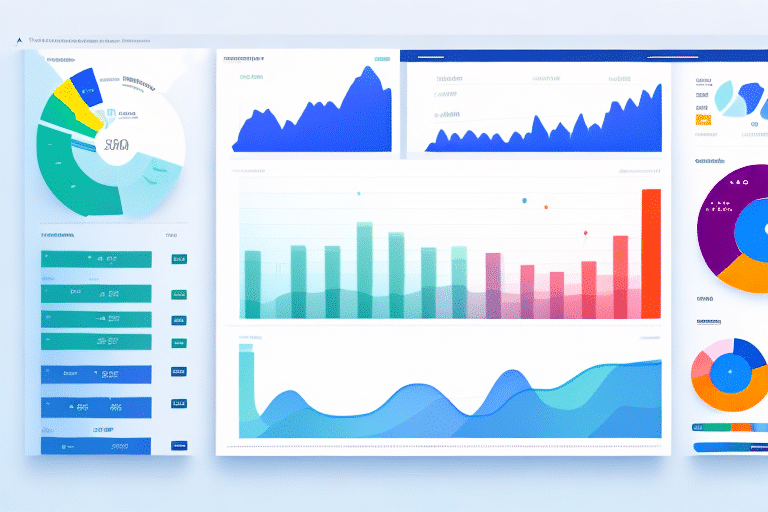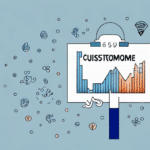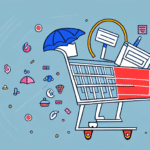Using a Customer Retention CRM to Increase Customer Loyalty
In today’s competitive business landscape, enhancing customer loyalty is crucial for sustained success. Retaining existing customers is not only more cost-effective than acquiring new ones but also fosters a loyal customer base that drives repeat business and referrals. Leveraging a Customer Relationship Management (CRM) system focused on customer retention can significantly boost customer engagement and loyalty.
Why Customer Retention Matters
Customer retention is a key driver of business growth and profitability. According to a Gartner report, increasing customer retention rates by just 5% can lead to a profit increase of 25% to 95%. Retaining customers reduces acquisition costs, fosters brand loyalty, and enhances the overall customer experience.
- Cost Efficiency: Acquiring new customers typically costs five times more than retaining existing ones.
- Brand Advocacy: Loyal customers are more likely to refer others, acting as brand ambassadors.
- Revenue Stability: Repeat purchases from loyal customers contribute to a more predictable revenue stream.
Moreover, businesses with high retention rates often benefit from a strong market reputation, as satisfied customers leave positive reviews and testimonials, further attracting new clients.
Benefits of Customer Retention CRM Systems
Enhanced Customer Engagement
A Customer Retention CRM system allows businesses to engage with customers more effectively by providing personalized communication based on individual preferences and behaviors. Personalized interactions lead to higher customer satisfaction and loyalty.
Improved Communication
CRMs centralize customer information, ensuring that all team members have access to up-to-date data. This streamlines communication, making interactions more consistent and meaningful across all touchpoints.
Personalized Customer Experiences
By analyzing customer data, businesses can tailor their offerings and interactions to meet the unique needs of each customer, enhancing the overall customer experience and fostering loyalty.
Choosing the Right CRM System for Your Business
Assessing Business Needs and Budget
When selecting a CRM system, it’s essential to evaluate your business’s specific needs and budget constraints. Consider the size of your customer base, the complexity of your sales processes, and the level of customization required.
Customization and Scalability
Choose a CRM that can be tailored to your business processes and has the flexibility to scale as your business grows. Features such as customer segmentation, personalized content, and comprehensive analytics are crucial for effective customer retention strategies.
Support and Training
Ensure that the CRM provider offers robust support and training resources. Adequate training ensures that your team can utilize the CRM effectively, maximizing its benefits for customer retention.
Implementing a Customer Loyalty Program with CRM
Tracking Customer Behavior and Preferences
A CRM system enables businesses to monitor customer behavior, including purchase history and interaction patterns. This data is vital for designing loyalty programs that resonate with customers’ preferences.
Designing Personalized Loyalty Programs
Utilize CRM data to create customized loyalty programs that offer relevant rewards and incentives. Personalized programs are more effective in encouraging repeat purchases and long-term loyalty.
Encouraging Referrals and Repeat Purchases
Incentivize loyal customers to refer friends and family by integrating referral rewards into your CRM-driven loyalty programs. This not only retains existing customers but also attracts new ones.
Analyzing and Measuring Retention Strategies
Key Metrics to Monitor
Track essential metrics such as customer retention rate, churn rate, and lifetime value (CLV) to assess the effectiveness of your retention strategies. These metrics provide insights into customer behavior and the overall health of your customer relationships.
Using Data-Driven Insights
Leverage CRM analytics to gain deeper insights into customer trends and preferences. Data-driven decision-making allows for more precise and impactful retention strategies.
Identifying At-Risk Customers
A CRM system can help identify customers who are likely to churn by analyzing their engagement patterns. Proactively addressing the needs of these customers can prevent loss and improve retention rates.
Real-World Success Stories
Several companies have successfully implemented Customer Retention CRM systems to enhance loyalty:
- Amazon: Utilizes CRM to personalize product recommendations, significantly boosting sales and customer satisfaction.
- Zappos: Employs a CRM system to deliver exceptional customer service, leading to high levels of customer loyalty and repeat business.
- Spotify: Uses CRM analytics to tailor music recommendations, enhancing user experience and retention.
These examples demonstrate how effectively using a CRM system can lead to substantial improvements in customer loyalty and business growth.
Best Practices for Maximizing CRM Potential
- Define Clear Goals: Establish specific objectives for your CRM implementation to ensure alignment with your business’s retention strategies.
- Invest in Training: Provide comprehensive training for your team to fully leverage the CRM’s capabilities.
- Maintain Data Quality: Regularly update and cleanse your CRM data to ensure accuracy and reliability.
- Integrate with Other Tools: Connect your CRM with other business tools, such as marketing automation and customer support platforms, to create a seamless workflow.
- Continuously Analyze and Adapt: Use CRM insights to refine and adapt your retention strategies, ensuring they remain effective and relevant.
By following these best practices, businesses can maximize the benefits of their Customer Retention CRM systems, leading to enhanced customer loyalty and sustained growth.
Conclusion
Implementing a Customer Retention CRM system is a strategic move for businesses aiming to boost customer loyalty and retention. By enhancing communication, personalizing interactions, and leveraging data-driven insights, businesses can foster long-term relationships with their customers. Investing in the right CRM system and following best practices ensures that companies can effectively retain their customer base, reduce acquisition costs, and achieve sustainable growth.




















